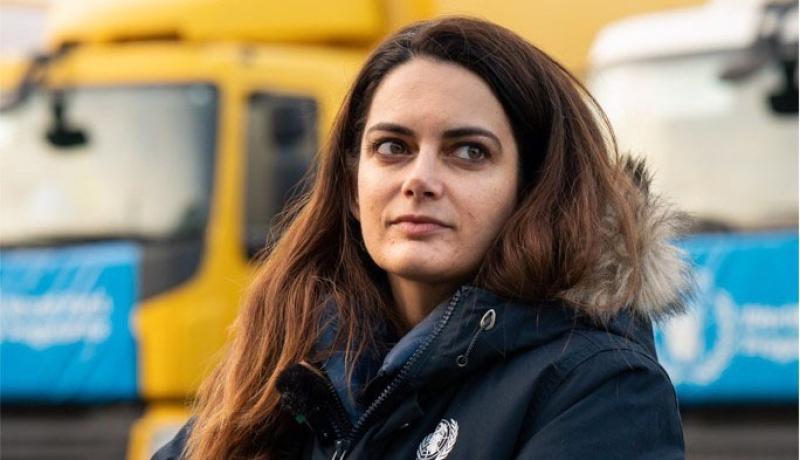Korbel Graduate Working on the Front Lines of Russia-Ukraine War

Laura Braff has lived and worked all over the world, thanks in part to her degree in international development from the University of Denver’s Korbel School of International Studies.
Both before and after her graduation in 2014, Braff’s work in public health and international aid has taken her from South Sudan to the Philippines, then to Ukraine, Ethiopia and Yemen and, finally, back to Ukraine, working on the ground with the World Health Organization to provide public health services amidst the country’s ongoing war with Russia.
Currently, as a health service delivery specialist for the WHO, Braff works right in the middle of the action along the Ukraine-Russia front lines.
“We work with the health facilities to make sure that they're still able to function and provide care to people, despite the fact that because of the war, a lot of the facilities have been bombed,” Braff says. “A lot of doctors have left.”
She says she’s seen firsthand how the war has affected Ukraine and its citizens.
“Dnipro, where I live—we make trips on a daily basis to the front lines. And there, yeah, you very, very much see it,” Braff says. “You see communities that have been completely ravaged, you constantly hear the shelling. So yeah, it can be intense, for sure.”
Braff says that while residing and working in an active war zone can take a significant emotional toll, there are varying degrees to which she’s affected by the reality of life in Ukraine.
“I think humans adapt quite quickly,” she says. “On the one hand, I'm used to it, I guess, especially having been in in Yemen for five years before this. I guess you learn to be comfortable in a war zone quite quickly, but at the same time, it can always be startling. … It always can be upsetting and emotional to see that kind of destruction.
“But I wouldn't say I'm at a heightened state of alert—I feel quite comfortable in my city. And then, yeah, something will happen, and it’ll be scary or startling. But I can kind of adapt again quite quickly.”
Braff credits Korbel’s humanitarian assistance and global health affairs programs with helping to prepare her for the kind of work she does. She was able to take classes about pathophysiology and epidemiology, both of which she says provided her with the tangible skills she needed to jump headfirst into her international career.
Braff says her time at Korbel helped her understand the types of work that exist in the humanitarian assistance field.
“For someone coming into the sector for the first time, it feels like quite a foreign language, and it's a lot of bureaucracy," she says. "It's a huge architecture. And so getting that [experience] was quite helpful, I think, to be able to allow me to hit the ground running.”
Ukraine holds a special place in Braff’s heart. She’s been in and out of the country in different capacities for more than a decade and has created and maintained close friendships along the way.
“I do have a close connection with this country, having been here first in 2009, for three years, with the Peace Corps. You're really living in the community, and you get quite close to people,” she says. “And then again, returning in 2015, I developed more close connections to people. Having that opportunity to reconnect with them and hear their experiences with the war is something I haven't really had with other missions.”


